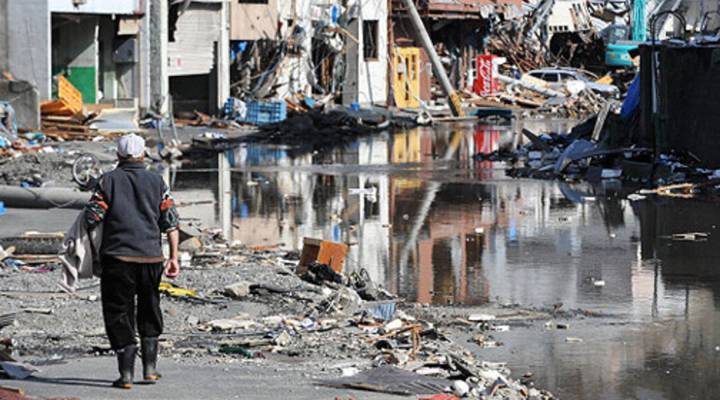
How to financially prepare for disasters

Tess Vigeland: There was an article in the Los Angeles Times this week about all the people who were suddenly calling contractors to get earthquake retrofits on their homes. We tend to ponder and acknowledge the worst-case scenario when we watch it happening to someone else. The rest of the time, we kind of pretend the risk doesn’t exist. So while we’re all thinking about it, let’s talk about how to disaster-proof our financial lives, or at least prepare as much as we can.
The last time we talked with Candysse Miller, the hills of the Angeles National Forest were on fire. She’s the executive director for the Insurance Information Network of California. Good to see you again.
Candysse Miller: Good to see you.
Vigeland: I have to tell you, I hesitate somewhat to start this by addressing earthquake preparedness. Because, quite frankly, it feels like we’ve gone so far beyond that with what’s happening in Japan. I mean, this is beyond earthquake, this beyond tsunami. Can you prepare for something like what’s happening in Japan?
Miller: How many people think about a 9.0 followed by just a massive tsunami with global implications?
Vigeland: And then nuclear problems.
Miller: On top of it. I mean, granted, Japan is going through an unthinkable situation right now. And yet, you can also see where their dedication to disaster preparedness — most prepared country on the globe. It did pay off in many ways. I mean, the last thing in the world you want to do is discourage someone from preparing.
Vigeland: Well, let’s start then with what lessons we can immediately take out of this, particularly when it comes to preparing ourselves financially for a disaster.
Miller: At the beginning of that would probably be the old home inventory that we always talk about.
Vigeland: In fact, you’ve been to my home and done that with me.
Miller: Yes, we have. And you saw how difficult and inventory can be. And especially, think about it, after the fact of a disaster, where you will be asked to compile “what were your loses?” That is a good starting point for your financial plan as well. Sit down and take an assessment of your finances, how much equity do you have in your home right now? That’s something you want to think about, not only with your family and that’s very important, but also with your financial planner or your insurance agent.
Vigeland: What about your cash situation in an emergency? You know, I think people don’t even know how much to have around the house, because, as we saw in New Orleans, banks were underwater. People literally could not go to an ATM machine.
Miller: We learned so many lessons from Katrina. And somehow, you’ve gotta be able to access that cash. So it almost goes to the old “do you stash the cash in the mattress.”
Vigeland: And if so, how much?
Miller: You may have a place in your home where you may want to keep at least a few hundred dollars in case of an event like that.
Vigeland: What happens if you are unable to get to or do your job in the aftermath of a disaster?
Miller: Well, this is a part of a plan that your employer should have on hand. And in fact, it’s a good idea to ask your employer, “Do we have a disaster plan? Do we need to practice this?” Big employers typically do.
Vigeland: I can’t believe I’m actually going to ask this question, but, what kind of coverage, if any, is available for radiation?
Miller: Well, the thing that you wouldn’t want to hear, necessarily, if you don’t have any familiarity with the issue, is that it’s not covered by your home-owner’s policy at all. The good news is is that there is a reason for that. It never has been, by federal law. When the nuclear industry was emerging, back in the 1950s, Congress acted to pass legislation called the Price-Anderson Act. And one of its mandates was that an insurance pool would be created by the nuclear industry and it’s funded to cover property losses, health damage and personal losses.
Vigeland: Not being able to go back to your home.
Miller: Exactly.
Vigeland: Anything else that we need to be keeping top of mind at this point?
Miller: I think it’s important not to be fatalistic. How many people prepare for what almost appears to be a once-in-a-lifetime event? I mean, truly truly the height of catastrophe. But it should also reinforce the lesson that this should be part of a family plan, to make sure that your family gets back on its feet after an event like this.
Vigeland: Candysse Miller is the executive director for the Insurance Information Network of California. Thanks so much for coming in.
Miller: Thank you.
There’s a lot happening in the world. Through it all, Marketplace is here for you.
You rely on Marketplace to break down the world’s events and tell you how it affects you in a fact-based, approachable way. We rely on your financial support to keep making that possible.
Your donation today powers the independent journalism that you rely on. For just $5/month, you can help sustain Marketplace so we can keep reporting on the things that matter to you.


















